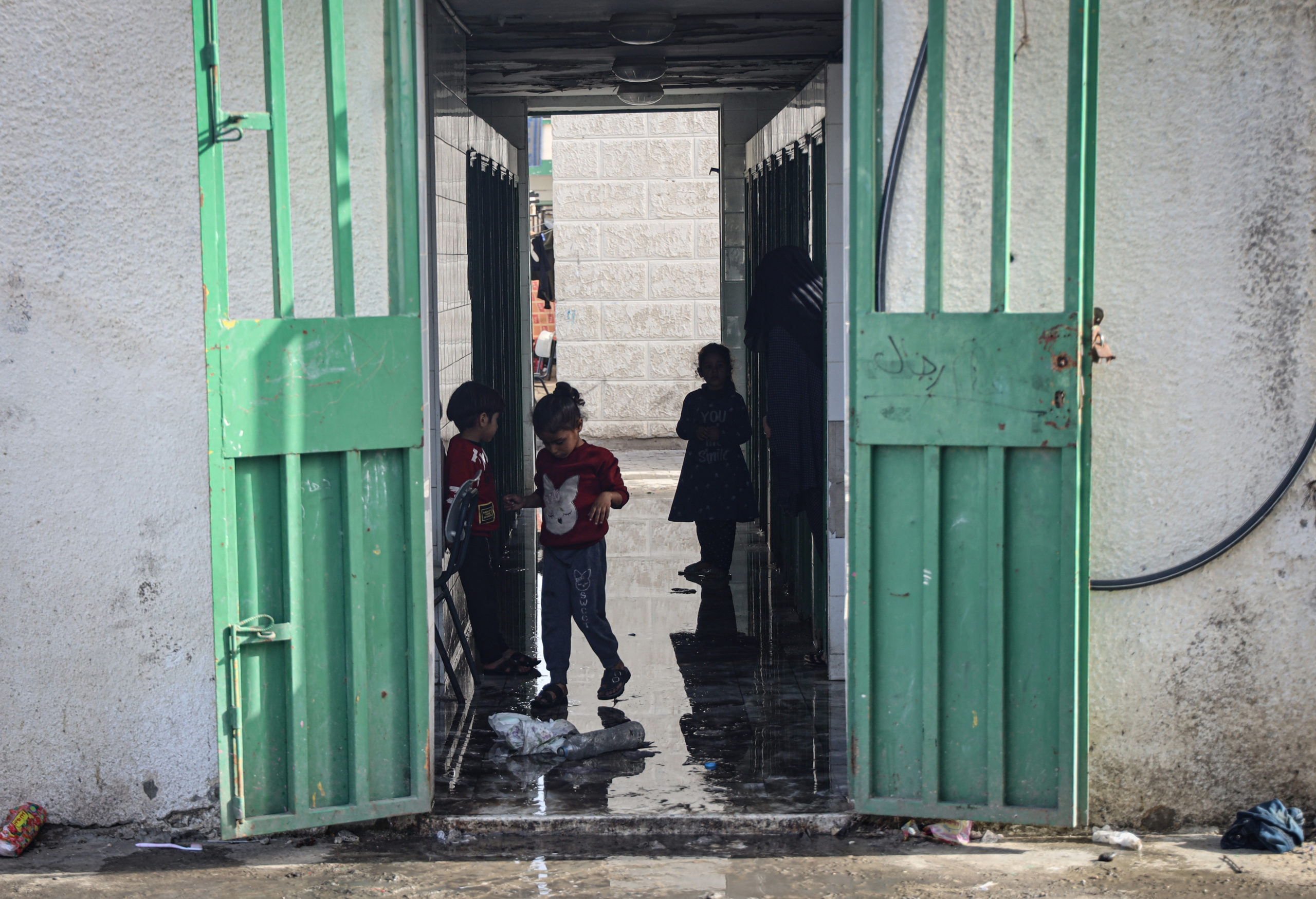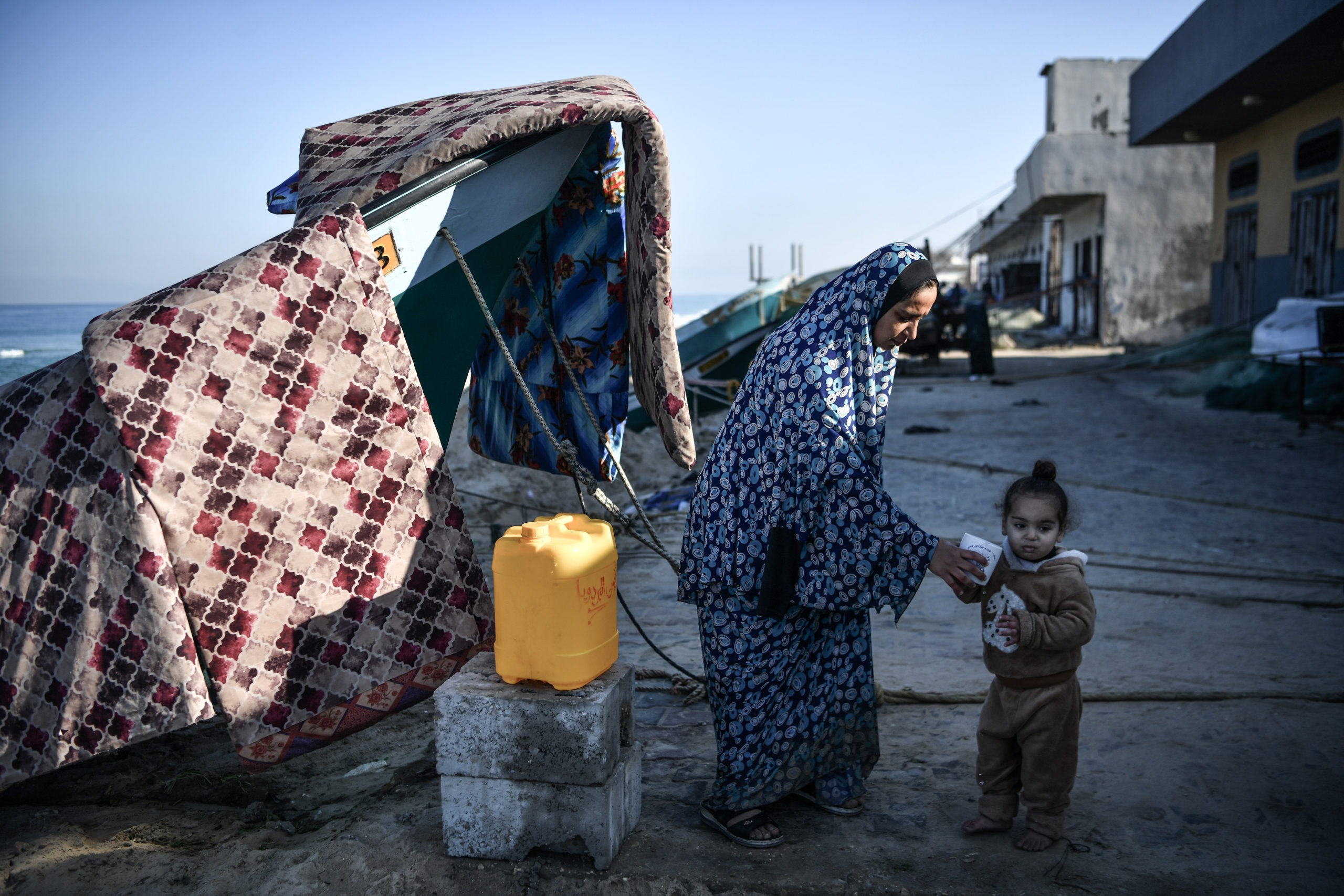
Water means survival in Gaza, thanks to you!
Thanks to your support, we can ensure all children in the Gaza Strip have access to safe clean water.
Since the start of the conflict, we have been working tirelessly, despite the incredible challenges, to provide life-saving drinking water to as many people as possible.
Right now, the situation in Gaza is dire due to water shortages, inadequate sanitation services and lack of hygiene supplies which are putting children’s health at huge risk.
Overcrowded refugee camps are making everyday life a constant battle for dignity and basic supplies. Families wait in long queues to reach toilet facilities or collect drinking water.
“I have to wait two hours to go to the bathroom. The queue is very long and there are many people in the shelter.” Eman’s daughter told us.

Eman’s family live in a makeshift tent inside a school’s courtyard. They had to leave their home in search of safety and are now taking shelter in Rafah City.
Thousands of families like Eman’s, endure a daily battle for survival. There, a basic human right to clean drinking water is just a distant dream. Denied even the most fundamental necessities, these families navigate a horrific reality stripped of health and dignity. They are forced to share three or four bathrooms among 700 people, plunging them into unimaginable hardship.
How is UNICEF responding?
Thanks to the support of committed donors like you, we are focusing our efforts on ensuring that children in Gaza have access to clean water and basic sanitation facilities through the following measures:
- Distribution of four water tanks (five cubic meters capacity) and 5,000 drums (10 litre capacity) to supply 20,000 people in Rafah and Khan Younis with clean water.
- Sending 43,000 litres of bottled water to more than 14,000 people, of which 7,450 are boys and girls.
- Installation of private mobile latrines to serve 10,000 people living in refugee camps.
- Delivery of fuel to a wastewater treatment plant so that 275,000 people, including 140,250 are children, can have water in Rafah.
- Support for cleaning services in 22 shelters in Rafah and Deir al-Balah, benefiting 90,000 people, more than half of whom are children.
- Training of 7,005 workers in waste management so that 30,000 people can enjoy decent hygiene conditions.
Thank you for your ongoing support!

